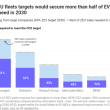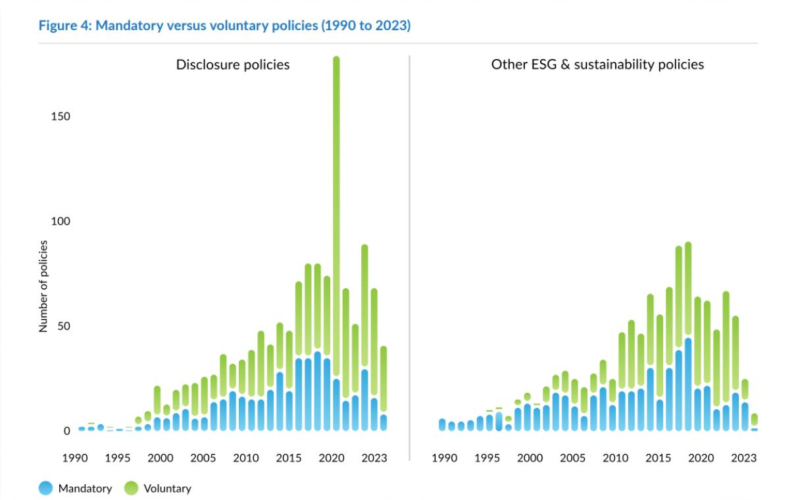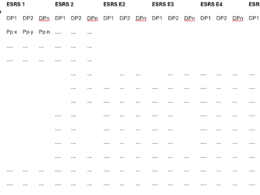The 2024 edition of the Carrots & Sticks (C&S) report reveals a continued global trend toward voluntary sustainability reporting frameworks, which now account for 58% of policies worldwide. The research, conducted by GRI and academic partners, tracks Environmental, Social, and Governance (ESG) policies across 132 countries, showcasing a preference for incentivising over mandating compliance.
The report identifies a significant presence of GRI Standards, referenced in 18% of ESG regulations globally, with 477 policies encouraging or mandating their use. Key sectors such as finance, manufacturing, and technology are the focus of 10–20% of these policies. The findings also highlight a rise in disclosure requirements linked to Sustainable Development Goals (SDGs) 8 (decent work) and 16 (peace and justice).
With 214 new policies added, the C&S database now tracks 2,677 sustainability and ESG policies. Voluntary measures dominate in regions such as Asia-Pacific, Europe, and Latin America, with six policies mandating GRI compliance and 127 advocating voluntary adoption.
Developed by GRI, Stellenbosch University Business School, King’s College London, and the University of Edinburgh, the ‘Carrots & Sticks’ initiative, launched in 2006, serves as a vital resource for businesses, policymakers, and researchers, providing insights to guide effective decision-making in sustainability reporting.
“The latest Carrots & Sticks findings highlight an increasing focus by governments and regulators towards legislative measures that encourage companies to address global sustainability challenges, alongside recognition of the role of transparency, including for supply chain impacts, in driving effective decisions by all stakeholders. It is encouraging to see a continued rise in references to the GRI Standards in global policies. However, to drive meaningful progress, a transition to robust mandatory policies is essential, complementing the predominantly voluntary disclosure landscape we see today,” said Peter Paul van de Wijs, Chief Policy Officer at GRI.
“The 2024 Carrots & Sticks report captures an exciting momentum in global ESG policy, marking both growth and depth in transparency initiatives. This year’s enhanced methodologies, including GICS (Global Industry Classification Standard) and advanced NLP (natural language processing) techniques, reveal more than just data – they illustrate a global commitment to sustainable governance,” said Adam Chalmers, Senior Lecturer in Politics and International Relations, University of Edinburgh.
Cornis van der Lugt, Senior Lecturer Extraordinaire, Stellenbosch Business School added, “Amid turbulent times, Carrots & Sticks remains a gripping reference for tracking the evolution of the sustainability agenda over the last two decades. New reporting requirements, and new terms and narratives, all offer new opportunities for applying its unique blend of software and human analysis. It remains a fantastic resource for those following, researching and involved in the debate.”
















